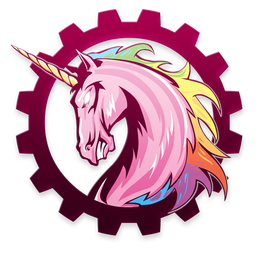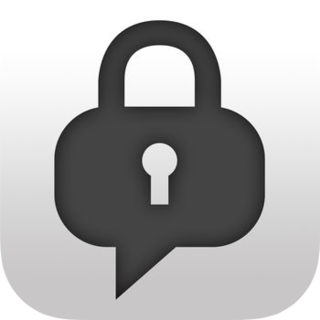 W
WAndroid is a mobile operating system based on a modified version of the Linux kernel and other open source software, designed primarily for touchscreen mobile devices such as smartphones and tablets. Android is developed by a consortium of developers known as the Open Handset Alliance and commercially sponsored by Google. It was unveiled in November 2007, with the first commercial Android device launched in September 2008.
 W
WAndroid software development is the process by which applications are created for devices running the Android operating system. Google states that "Android apps can be written using Kotlin, Java, and C++ languages" using the Android software development kit (SDK), while using other languages is also possible. All non-JVM languages, such as Go, JavaScript, C, C++ or assembly, need the help of JVM language code, that may be supplied by tools, likely with restricted API support. Some programming languages and tools allow cross-platform app support. Third party tools, development environments, and language support have also continued to evolve and expand since the initial SDK was released in 2008. The official Android app distribution mechanism to end users is Google Play; it also allows staged gradual app release, as well as distribution of pre-release app versions to testers.
 W
WAOKP, short for Android Open Kang Project, is an open-source replacement distribution for smartphones and tablet computers based on the Android mobile operating system. The name is a play on the word kang and AOSP. The name was a joke, but it stuck. It was started as free and open-source software by Roman Birg based on the official releases of Android Open Source Project by Google, with added original and third-party code, features, and control.
 W
WChatSecure is a messaging application for iOS which allows OTR and OMEMO encryption for the XMPP protocol. ChatSecure is free and open source software available under the GNU General Public License. ChatSecure also features built-in support for anonymous communication on the Tor network.
 W
WCyanogenMod is a discontinued open-source operating system for mobile devices, based on the Android mobile platform. It was developed as free and open-source software based on the official releases of Android by Google, with added original and third-party code, and based on a rolling release development model. Although only a subset of total CyanogenMod users elected to report their use of the firmware, on 23 March 2015, some reports indicated that over 50 million people ran CyanogenMod on their phones. It was also frequently used as a starting point by developers of other ROMs.
 W
WFirefox OS is a discontinued open-source operating system – made for smartphones, tablet computers and smart TVs – designed by Mozilla and external contributors. It is based on the rendering engine of the Firefox web browser, Gecko, and on the Linux kernel. It was first commercially released in 2013.
 W
WKiwix is a free and open-source offline web browser created by Emmanuel Engelhart and Renaud Gaudin in 2007. It was first launched to allow offline access to Wikipedia, but has since expanded to include other projects from the Wikimedia Foundation as well as public domain texts from Project Gutenberg. Available in more than 100 languages, Kiwix has been included in several high-profile projects, from smuggling operations in North Korea and encyclopedic access in Cuba to Google Impact Challenge's recipient Bibliothèques Sans Frontières.
 W
WKodi is a free and open-source media player software application developed by the XBMC Foundation, a non-profit technology consortium. Kodi is available for multiple operating systems and hardware platforms, with a software 10-foot user interface for use with televisions and remote controls. It allows users to play and view most streaming media, such as videos, music, podcasts, and videos from the Internet, as well as all common digital media files from local and network storage media.
 W
WLineageOS is an operating system for smartphones, tablet computers, and set-top boxes, based on Android with mostly free and open-source software. It is the successor to the custom ROM CyanogenMod, from which it was forked in December 2016 when Cyanogen Inc. announced it was discontinuing development and shut down the infrastructure behind the project. Since Cyanogen Inc. retained the rights to the Cyanogen name, the project rebranded its fork as LineageOS.
 W
WLuneOS is a mobile operating system (OS) based on the Linux kernel and currently developed by WebOS Ports community. With a user interface based on direct manipulation, LuneOS is designed primarily for touchscreen mobile devices such as smartphones and tablet computers. The OS uses touch inputs that loosely correspond to real-world actions, like swiping, tapping, pinching, and reverse pinching to manipulate on-screen objects, and a virtual keyboard.
 W
WMaliit is an input method framework for computers with particular focus on implementing virtual keyboards. Designed mostly for touchscreen devices, Maliit allows the inputting of text without the presence of a physical keyboard. More advanced features such as word correction and prediction are also available.
 W
WMeeGo is a discontinued Linux distribution hosted by the Linux Foundation, using source code from the operating systems Moblin and Maemo. Primarily targeted at mobile devices and information appliances in the consumer electronics market, MeeGo was designed to act as an operating system for hardware platforms such as netbooks, entry-level desktops, nettops, tablet computers, mobile computing and communications devices, in-vehicle infotainment devices, SmartTV / ConnectedTV, IPTV-boxes, smart phones, and other embedded systems.
 W
WmicroG is a free and open-source implementation of proprietary Google libraries that serves as a replacement for Google Play Services on the Android operating system. It is maintained by German developer Marvin Wißfeld. microG allows mobile device users to access Google mobile services with less tracking of their device activity compared to Google Play Services. In a presentation, Wißfeld described microG as "the framework to create a fully-compatible Android distribution without any proprietary Google components".
 W
WMoSync is a discontinued free and open-source software development kit (SDK) for mobile applications. It is integrated with the Eclipse development environment. The framework produces native mobile applications for multiple platforms using C/C++, HTML5 scripting and any combination thereof. The target group for MoSync are both web developers looking to enter the mobile space, as well as the ordinary PC/Mac desktop developer with knowledge in C/C++ development.
 W
WmXparser is an open-source mathematical expressions parser/evaluator providing abilities to calculate various expressions at a run time. Expressions definitions are given as plain text, then verified in terms of grammar / syntax, finally calculated. Library source code is maintained separately for Java and C#, providing the same API for Java/JVM, Android, .NET and MONO. Software is free and is distributed under Simplified BSD License.
 W
WNavit is a free and open-source, modular, touch screen friendly, car navigation system with GPS tracking, realtime routing engine and support for various vector map formats. It features both a 2D and 3D view of map data.
 W
WOmniROM is an open-source operating system for smartphones and tablet computers, based on the Android mobile platform. It involves a number of prominent developers from other projects.
 W
WOpenmoko Linux is an operating system for smartphones developed by the Openmoko project. It is based on the Ångström distribution, comprising various pieces of free software.
 W
WParanoid Android is an open-source operating system for smartphones and tablet computers, based on the Android mobile platform. The latest official version is Quartz 5, based on Android 10, released on 30th September 2020.
 W
WPostmarketOS is a free and open-source operating system under development primarily for smartphones, based on the Alpine Linux distribution.
 W
WPureOS is a GNU/Linux distribution focusing on privacy and security, using the GNOME desktop environment. It is maintained by Purism for use in the company's Librem laptop computers as well as the Librem 5 smartphone.
 W
WReplicant is a free operating system (OS) based on the Android mobile platform that aims to replace all proprietary Android components with free-software counterparts. It is available for several smartphones and tablet computers. It is written in the same programming languages as Android. The modifications are mostly in the C language; the changes are mostly to the lower-level parts of the OS, such as the Linux kernel and drivers that use it.
 W
WSailfish OS is a Linux-based operating system based on open source projects such as Mer and including a closed source UI. The project is being developed by the Finnish company Jolla.
 W
WSHR was a community-driven Linux distribution for smartphones which was based on OpenEmbedded, Xorg, and the freesmartphone.org (FSO) framework. Several different graphical toolkits were made available, such as GTK+ and Qt.
 W
WTizen is a Linux-based mobile operating system backed by the Linux Foundation but developed and used primarily by Samsung Electronics.
 W
WTwimight was an open source Android client for the social networking site Twitter. The client let users view in real time "tweets" or micro-blog posts on the Twitter website as well as publish their own.
 W
WUbuntu Touch is a mobile version of the Ubuntu operating system, being developed by the UBports community. Its user interface is written in Qt, and is designed primarily for touchscreen mobile devices such as smartphones and tablet computers, but the original goal of convergence was intended to bring Ubuntu Touch to laptops, desktops, IOT devices, TVs and smart watches for a complete unified user experience.